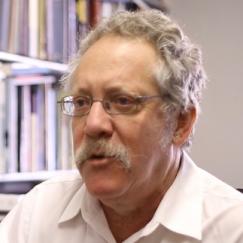All illusions are potential ways of ordering reality. The goal of criticism should therefore be not to destroy illusions but to make us more sensitive to their workings and their complexity.

Dana Polan
The Media Education Lab advances media literacy education through research and community service. We emphasize interdisciplinary scholarship and practice that stands at the intersections of communication, media studies and education.
All illusions are potential ways of ordering reality. The goal of criticism should therefore be not to destroy illusions but to make us more sensitive to their workings and their complexity.
- Leo Braudy, The World in a Frame, 1977
Media Education Lab
https://mediaeducationlab.com
Email: renee@mediaeducationlab.com
© 2017, Media Education Lab, University of Rhode Island. All rights reserved.
Developed By Young Globes
Roland
I read S/Z in my
I read S/Z in my senior year in a graduate seminar devoted just to it, and it soon became the decisive Barthes text for me. We might contrast the short and pithy readings Barthes enacts in Mythologies, finding the recurrent operations of bourgeois everywhere, to his slow-motion dissection of a single Balzac story over hundreds of pages in S/Z: there, Barthes uses close reading to capture Balzac’s text as caught between realism and modernism, between representation and its delirious breakdown, and between depiction of an older social order’s stability and the invocation of the new, unfixed social relations of an expansive capitalism geared to creative destruction. I had taken to heart Barthes’s insistent demonstration in Mythologies of the incessant operations of ideology in mass culture, but S/Z offered nuance, detail, a concern with contradiction, and a deeper sense of history (not all texts across time are ideological in the same way and to the same degree).
Roland Barthes has stayed with me as an inspiration (although I generally find his writings after S/Z up to his death in 1980 much less useful to the project of historical and ideological analysis that I continue to engage in). I’ve taught seminars on him over the years, and each time I see the spark that occurs when students engage with works like Mythologies and S/Z. But I also feel the spark anew myself, as I find myself learning again and remembering why Theory mattered—and continues to matter.